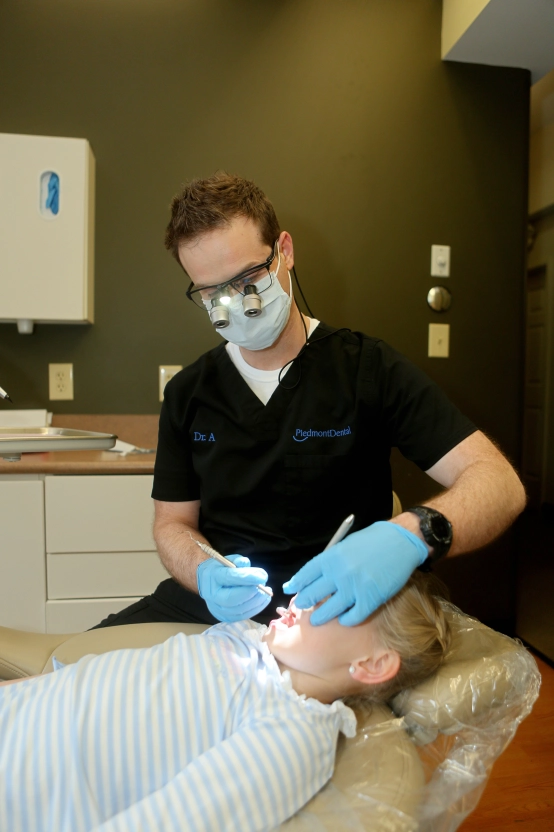What dental services do Rock Hill dentists offer?
What dental services do Rock Hill dentists offer? Understanding the range of dental services offered by local dentists is vital for maintaining optimal oral health.

Tooth pain is a prevalent and often debilitating condition that affects people of all ages. Understanding its causes, symptoms, and treatment options is crucial for maintaining oral health and overall well-being. This guide aims to provide comprehensive insights into the various dimensions of tooth pain and offer practical solutions and preventive measures. If the pain is too extreme, you may need and emergency dental appointment.
 Tooth pain is primarily caused when the nerve within a tooth’s root or surrounding it becomes irritated. This irritation can result from dental infections, decay, injuries, or the loss of a tooth, leading to varying degrees of discomfort. Additionally, pain may also occur post-extraction, adding to the distress.
Tooth pain is primarily caused when the nerve within a tooth’s root or surrounding it becomes irritated. This irritation can result from dental infections, decay, injuries, or the loss of a tooth, leading to varying degrees of discomfort. Additionally, pain may also occur post-extraction, adding to the distress.
Understanding the specific cause of tooth pain is essential for effective treatment. Whether it’s due to an underlying dental condition or external injury, addressing the root cause can alleviate pain and prevent further complications.
Referred pain is a condition where pain is felt in an area different from the source of pain. In the context of dental health, pain may originate from areas like the jaw joint, ear, or sinuses and radiate to the jaw, creating an illusion of tooth pain. In some rare instances, heart problems can also manifest as tooth pain.
Identifying referred pain is crucial as it requires a different approach to diagnosis and treatment. A thorough examination is necessary to ascertain the actual source of pain and administer appropriate interventions.
 Bacteria play a significant role in dental health, contributing to conditions like gum disease and dental decay, which are common causes of tooth pain. The oral cavity is a breeding ground for bacteria, making regular dental hygiene practices essential for maintaining oral health.
Bacteria play a significant role in dental health, contributing to conditions like gum disease and dental decay, which are common causes of tooth pain. The oral cavity is a breeding ground for bacteria, making regular dental hygiene practices essential for maintaining oral health.
Implementing a robust dental hygiene routine, including brushing with fluoride toothpaste, flossing, and professional cleaning, can significantly reduce bacterial growth and the risk of dental issues, thereby mitigating the chances of experiencing tooth pain.
 Preventive dental care is paramount in avoiding tooth pain and other dental problems. Regular dental check-ups, maintaining a balanced diet, avoiding tobacco, and using protective gear during sports are practical measures to prevent dental issues and injuries.
Preventive dental care is paramount in avoiding tooth pain and other dental problems. Regular dental check-ups, maintaining a balanced diet, avoiding tobacco, and using protective gear during sports are practical measures to prevent dental issues and injuries.
Being proactive in dental care not only helps in preventing tooth pain but also contributes to overall dental health. Awareness and adherence to preventive measures can significantly reduce the risk of dental ailments and enhance oral well-being.
Recognizing the symptoms of tooth pain is the first step towards diagnosis and treatment. Symptoms such as persistent pain, sensitivity to temperature, swelling around a tooth, bad breath, fever, and a bad taste in the mouth may indicate underlying dental issues.
A comprehensive approach to diagnosis, involving a detailed medical history, oral examination, and, if necessary, X-rays, is essential to identify the root cause of the pain and determine the appropriate treatment plan.
 Treatment for tooth pain varies depending on the diagnosis. It may involve fillings, tooth extractions, root canal therapy, or addressing non-dental issues causing the pain. Adherence to prescribed medications, maintaining dental hygiene, and regular follow-ups post-treatment are crucial for expedited recovery and prevention of recurrence.
Treatment for tooth pain varies depending on the diagnosis. It may involve fillings, tooth extractions, root canal therapy, or addressing non-dental issues causing the pain. Adherence to prescribed medications, maintaining dental hygiene, and regular follow-ups post-treatment are crucial for expedited recovery and prevention of recurrence.
Choosing the right treatment option is crucial for alleviating pain and preventing further complications. Whether it’s a minor intervention or a more complex procedure, following the recommended treatment plan is essential for optimal recovery and long-term dental health.
What dental services do Rock Hill dentists offer? Understanding the range of dental services offered by local dentists is vital for maintaining optimal oral health.
What dental services do Rock Hill dentists offer? Dry-run content placeholder for What dental services do Rock Hill dentists offer?. Our Location Piedmont Dental –
What are dental bridges? Dental bridges are a reliable and effective solution for individuals who are missing one or more teeth. They not only restore
Do and don’ts after wisdom teeth removal? Wisdom teeth removal is a common dental procedure that many people undergo during their late teens or early
How many days does it take to recover from wisdom teeth removal? Understanding Wisdom Teeth Removal Wisdom teeth, known as third molars, typically emerge in
What is a family dentist? When it comes to dental care, families often seek a provider who can cater to the unique needs of every